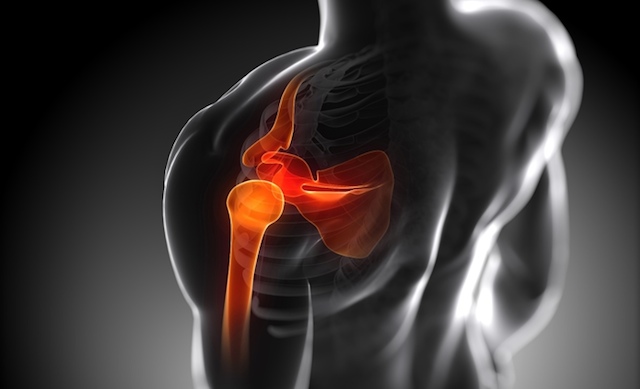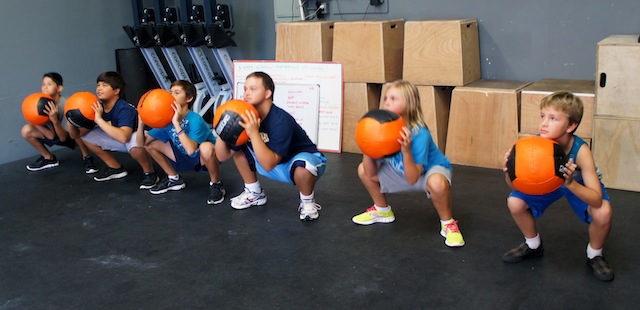
Do you experience a sharp pain in your shoulder when you move it or hear a popping sound near the area? You may be suffering from a rotator cuff tear. This is a common injury to affect the shoulders and can cause severe discomfort. This blog post will explain a rotator cuff tear, its causes, symptoms, and treatment options available, and how to prevent re-injury. So if you’ve ever wondered why your shoulder has been giving you trouble lately, read on.
Overview of rotator cuff tears
You may have a rotator cuff tear if you’re experiencing shoulder pain or weakness. Your rotator cuff are muscles and tendons that work together to stabilize your shoulder joint. A tear in any of these muscles or tendons can cause pain, weakness, and a limited range of motion in your shoulder. The two types of rotator cuff tears are partial and complete thickness. Partial tears only affect part of the muscle or tendon, while full-thickness tears completely sever the muscle or tendon. Various factors, including aging, repetitive overhead movements, or a traumatic injury, can cause rotator cuff tears.
If you suspect a rotator cuff tear, see a doctor for a proper diagnosis and treatment plan. Sometimes, they may recommend surgery for rotator cuff tears or physical therapy to help strengthen and heal the shoulder. Otherwise, they can suggest ways to manage your pain and prevent re-injury. Ultimately, getting the proper diagnosis and treatment is vital to minimize your risk of re-injury and reduce pain.
-
When to see a doctor
If you’ve recently experienced pain or discomfort in your shoulder, there’s a chance you may have a rotator cuff injury. While some minor damages may resolve independently, knowing when to see a doctor is essential. Signs that it’s time to see a medical professional may include pain that prevents you from participating in everyday activities, weakness or limited range of motion in your shoulder, or a significant trauma like a fall that caused the injury. Ignoring a rotator cuff injury can lead to more severe complications, so seeking medical attention as soon as possible is essential. A doctor can diagnose your injury and provide the appropriate treatment plan. Don’t wait until the pain becomes unbearable; visit a doctor if you suspect a rotator cuff injury.
Causes of a rotator cuff injury
Your shoulders are vital in everyday activities, from carrying groceries to throwing a ball with your children. However, overuse or trauma to the rotator cuff can lead to injury and pain that can significantly impact our quality of life. One common cause of a rotator cuff injury is repetitive movement or strain, such as those experienced by baseball pitchers or construction workers. Other factors contributing to a rotator cuff injury include aging, poor posture, or sudden trauma, such as a fall or car accident. Understand the causes of a rotator cuff injury to take measures to prevent it and protect your shoulders, so you can keep doing the activities you love.
Symptoms of a rotator cuff tear
Dealing with any type of injury can be challenging, especially when unfamiliar with the symptoms. One common injury many people experience is a rotator cuff tear, which occurs when the tendons in the shoulder are damaged. Some signs to look out for include:
- Pain and weakness in the shoulder.
- Difficulty lifting objects.
- Cracking or popping sounds when the shoulder is moved.
Seek medical attention if you suspect a rotator cuff tear because untreated injuries can cause long-term damage.
Diagnosis for a rotator cuff injury
A rotator cuff injury can be a painful and debilitating experience, but it can be effectively treated with the correct diagnosis. It is essential to seek medical attention as soon as possible to determine the severity of the injury and develop an appropriate treatment plan. Diagnosing a rotator cuff injury often involves a physical exam, imaging tests such as X-rays, MRI, or ultrasound, and assessing the patient’s medical history. With the help of a skilled and experienced healthcare professional, a proper diagnosis can be made, and steps can be taken toward recovery.
Treatment options for a rotator cuff injury
Physical therapy is a common first step, with exercises designed to strengthen the muscles in your shoulder and improve flexibility. In more severe cases, surgery may be necessary, either to repair the damaged tissue or to replace it entirely. Other non-surgical treatments include corticosteroid injections or ultrasound therapy. Whatever treatment option you choose, you must work closely with your healthcare provider to develop a comprehensive plan that addresses your needs and goals. With the proper care and commitment, a rotator cuff injury doesn’t have to keep you sidelined for long.
-
Stretching and strengthening exercises for a rotator cuff injury
Stretching exercises help to improve flexibility while strengthening exercises target the muscles in your shoulder and upper back to provide the support your rotator cuff needs. Some practical activities include shoulder blade squeezes, external rotations, and arms overhead stretches. It’s essential to consult with a healthcare professional before beginning any exercise program. However, incorporating these exercises into your routine can be valuable in recovering from a rotator cuff injury.
-
Pain management tips for a rotator cuff injury
Pain management is an essential part of the healing process, and there are various tips to help reduce discomfort. One effective strategy is to apply ice to the affected area for 20 minutes daily. Gentle stretches and exercises can also help to improve flexibility and reduce pain. Listening to your body and avoiding activities that worsen the pain is essential. If the pain persists, seeking medical advice and considering medications or physical therapy to help manage the symptoms is vital. With the proper pain management techniques, you can find relief and return to your regular activities quicker.
The shoulder is a complex joint, and injuries to the rotator cuff can be painful and limiting. Understanding the cause, symptoms, and treatments associated with a rotator cuff tear are essential when making informed decisions about this injury. Of course, every injury is unique, so it is always recommended to seek professional advice instead of self-diagnosing or attempting home remedies. With proper care, one should experience comfort again regarding shoulder joints in no time.


















Follow Us